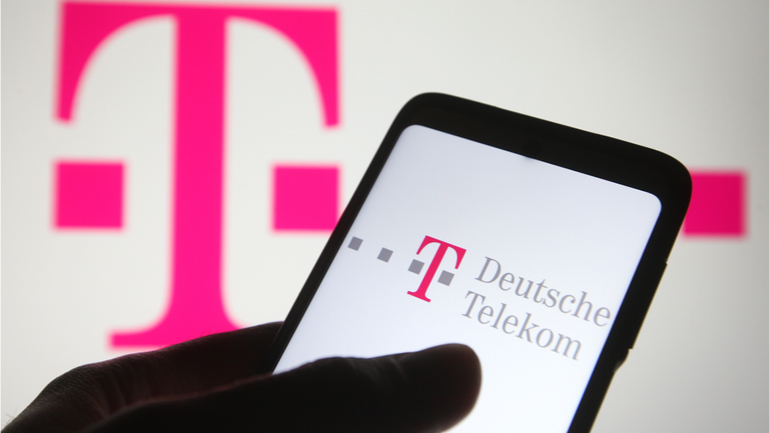Deutsche Telekom (DT) has announced that it is investing an undisclosed amount in the blockchain payment platform Celo. The company also purchased an unspecified amount of Celo digital tokens to be used on the platform. Deutsche Telekom will be the first telecommunications company to join the Celo Alliance for Prosperity. Celo is an open-source blockchain ecosystem that focuses on making decentralized financial (DeFi) systems and tools accessible via the smartphone. The Celo ecosystem includes a decentralized, proof-of-stake blockchain technology package, a native asset (CELO), two stablecoins (cUSD and cEUR) and the Celo Foundation Alliance of Prosperity. The company was launched in 2017 and has maintained a low profile in the crypto market. However, this has changed in recent months, in part due to the recent $20 million funding raised by blue venture capital firms, including Andreessen Horowitz. This move by DT represents their initial foray into and testing…
When a new technology or opportunity is created, it is up to industry verticals to decide how, when, and where to exploit its potential. Communication service providers (CSPs) will find it challenging to adopt and implement technology such as blockchain. We have already discussed the benefits and possibilities of blockchain for telecommunication providers. While the benefits of adopting blockchain in the telecommunications business are clear, putting the theory into practice may not come easily. It is important that Communication Service Providers (CSPs) work in synergy, looking beyond obvious solutions if they are to take full advantage of the potentially huge advantages distributed ledger technology can offer. The following advice on adopting blockchain are based on the onerous experience of early adopters of blockchain. Collaborating and sharing of information Telecommunications companies can substantially improve their services by sharing or joining forces with each other. It is vital that these companies work together…
IBM and Telefónica Argentina (Movistar) have announced a live, fully operational Open RAN network that will act as a proof of concept (PoC) for the delivery of commercial mobile services to the city of Puerto Madryn, Argentina, covering 81,000 urban residents. The launch allows for the testing of live, commercial traffic and provides an early proof point for the technology as it continues to develop. IBM has led the system integration process, assembling components and systems from a number of software and hardware vendors, including Altiostar, Red Hat, Quanta, Gigatera and Kontron, from pre-integration all the way through to full deployment. Open RAN is a state-of-the-art radio access network technology that enables interoperability for transforming a radio network into an open cloud environment in which multiple vendors can participate to create a better and more efficient service network. When using Open RAN, operators can combine hardware and software…
The world is still standing on its tip toes and looking over its shoulder because of how our lives have changed since the end of 2019. Yes, we are all tired of hearing this, but the truth is that a pandemic is still very real, and we all have a duty to protect ourselves and each other. Therefore, some of the biggest events in the telecommunications industry are going virtual in 2021. Even though general societal norms have been halted to a large extent, we are still moving forward, albeit at a slow pace with much more cautious steps. We invite you to explore the list we have compiled of the top telecom events that will take place online this year. CC-Enterprise Webinar.Live Session CC (Carrier Community) is organising its next digital Enterprise CC-Webinar.Live Panel Discussion and Knowledge Sharing Session, scheduled to take place on April 12, 2021. During…
FCC establishes Emergency Broadband Benefit program The FCC has recently held an open meeting in order to discuss its next priorities. One of the most important matters discussed was the new Emergency Broadband Benefit program, which Congress has instructed the FCC to initiate. As part of the Consolidated Appropriations Act, Congress has allocated $3.2 billion for the program. Broadband providers participating in the program will be able to offer discounts of up to $50 per month for Internet services and up to $75 per month for those services on tribal lands. Currently, it is unclear how long these broadband benefits will last. Read more at: https://tinyurl.com/jj52hlfl Sinch acquires Inteliquent Sinch AB, a Sweden-based company primarily engaged in the provision of cloud computing services, has signed a final agreement to acquire Inteliquent, the largest independent voice communications provider in the US, for an all-cash offer of $1.140 billion. The deal expands…
The independent German telecommunications company 1&1 Drillisch has announced that it has accepted Telefonica Deutschland’s improved national roaming offer. Drillisch said that if a roaming agreement were to be reached with Telefonica, it would retrospectively add $41 million to its 2020 earnings, which it would book in its 2021 fiscal year. Telefonica Deutschland and 1&1 Drillisch have agreed on the details of a new national roaming agreement after lengthy pricing disputes. Both sides claimed a positive result after the European Commission (EC) helped reach a compromise. The companies are expanding their long-term partnership by transforming the current MBA MVNO contract into a National Roaming Agreement (NRA) under the 2014 Telefónica Deutschland and E-Plus merger remedy framework. The parties are now seeking to complete the contractual details for the NRAs by mid-May 2021. Initially, the NRA includes a 5-year contract period that retroactively starts 1 July 2020 and…
Nokia announced on Monday that Deutsche Telekom (DT) has chosen the Finnish multinational telecommunication provider to convert DT’s optical network into a service-oriented platform. The transformation will allow Deutsche Telekom to provide its customers with an improved service quality experience, by upgrading the existing network to an expansive and automated one. The use of automation will help the operator to simplify and organize operational tasks to make more efficient use of network resources. Deutsche Telekom will adapt Nokia’s optical transport portfolio to become a higher-capacity, self-regulating network that meets residential and Industry 4.0 requirements. This gives Nokia the opportunity to promote its ‘Wave’ Brand optical transport portfolio: the Nokia WaveFabric service-ready platforms and the Nokia WaveSuite software portfolio, that includes the Nokia 1830 Photonic Service Switch (PSS) provided by the PSE- V family of coherent DSPs (digital signal processors). This solution will revolutionize Deutsche Telekom’s optical backbone network…
Vodafone and Nokia test 100G PON tech Nokia’s new technology has been tested for the first time by Vodafone in Germany. The prototype used a single 25G laser and DSP technology developed at Nokia Bell Labs to create the single wavelength 100G PON transmission. Gavin Young, Head of Vodafone’s Fixed Access Center of Excellence, said the 100G PON is 40 times the capacity of today’s GPON networks and 10 times the capacity of the XGS-GPON. The 100G PON enables flexible tariffs and operates by grouping modems using a methodology similar to that already used in cable networks, suggesting that this cable network experience can help to better evaluate and take advantage of the new PON technology. Read more: https://tinyurl.com/xpai96uz Spectrum Enterprise leverages Cisco Meraki’s cloud platform Spectrum Enterprise is leveraging a new managed network solution based on Cisco’s Meraki cloud platform. Spectrum Enterprise’s Managed Network Edge (MNE) was designed to…
The Vodafone Foundation has announced an investment of €20 million to fund digital skills and education initiatives across Europe and the UK. It is expected that by 2025, the programs sponsored by this investment will reach 16 million learners. The programs run in partnership with charities and NGOs, and will allow people to develop their knowledge and skills in using digital technologies. The €20 million investment is said to be spread over the next five years. The program aims to reach millions of primary and secondary school learners, those who are not students, employed or in training, and the elderly. This announcement happened to coincide with International Education Day. According to Vodafone, countries such as Albania, the Czech Republic, Germany, Greece, Hungary, Ireland, Italy, Luxembourg, the Netherlands, Portugal, Romania, Spain, Turkey and the UK will receive funding for advancing digital skills. Nick Read, CEO Vodafone Group, said: “Vodafone…













